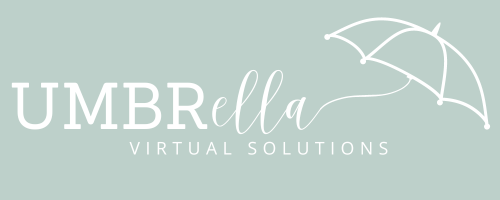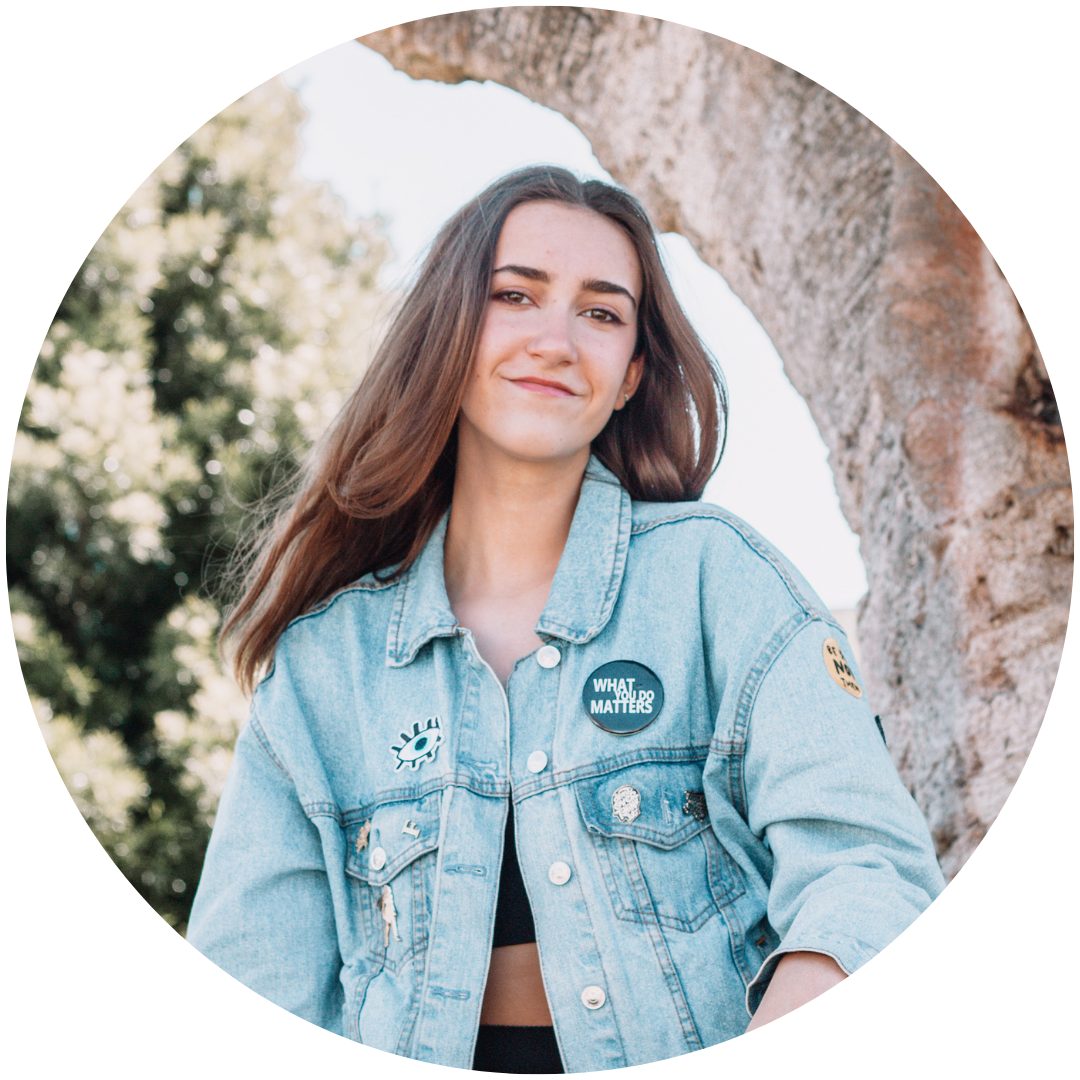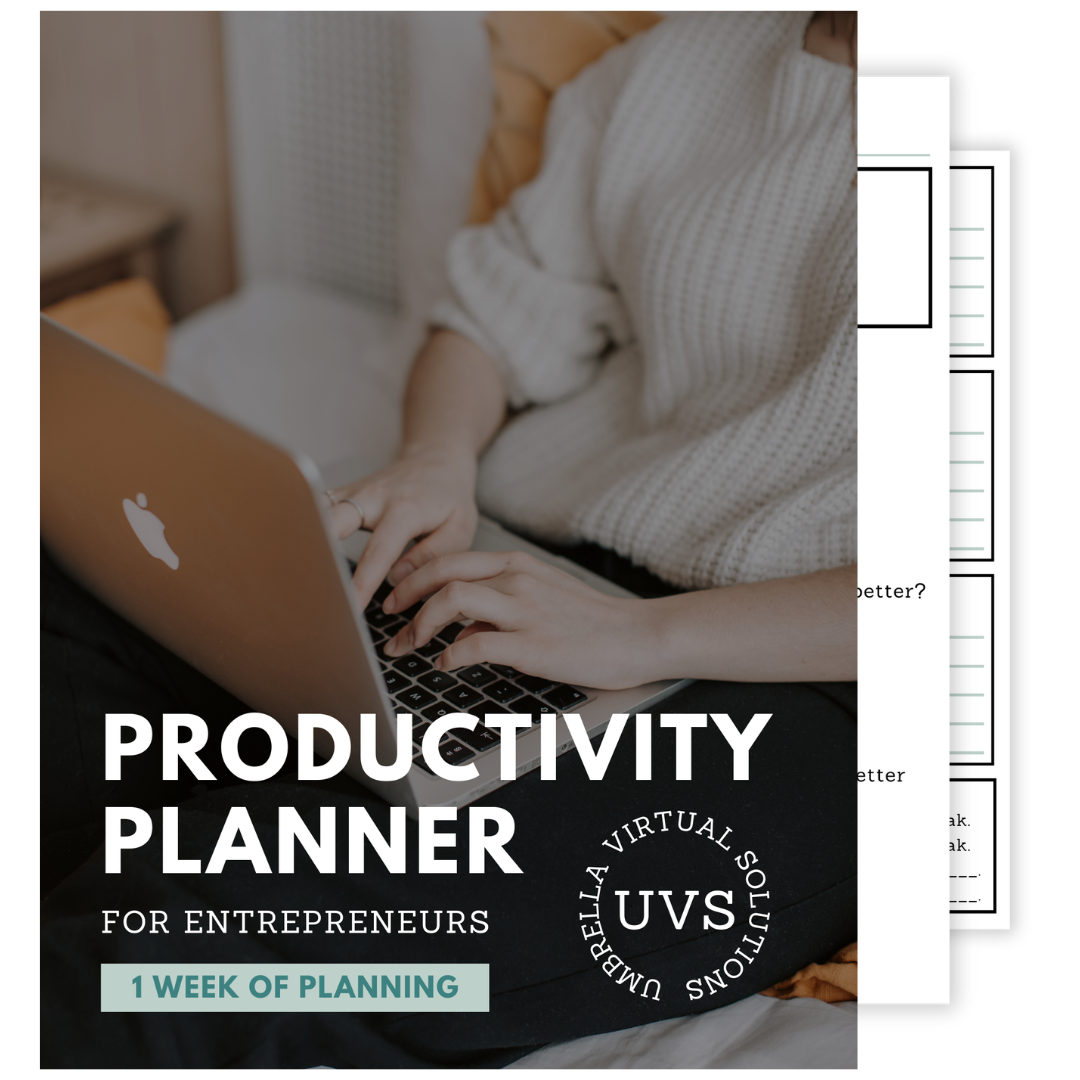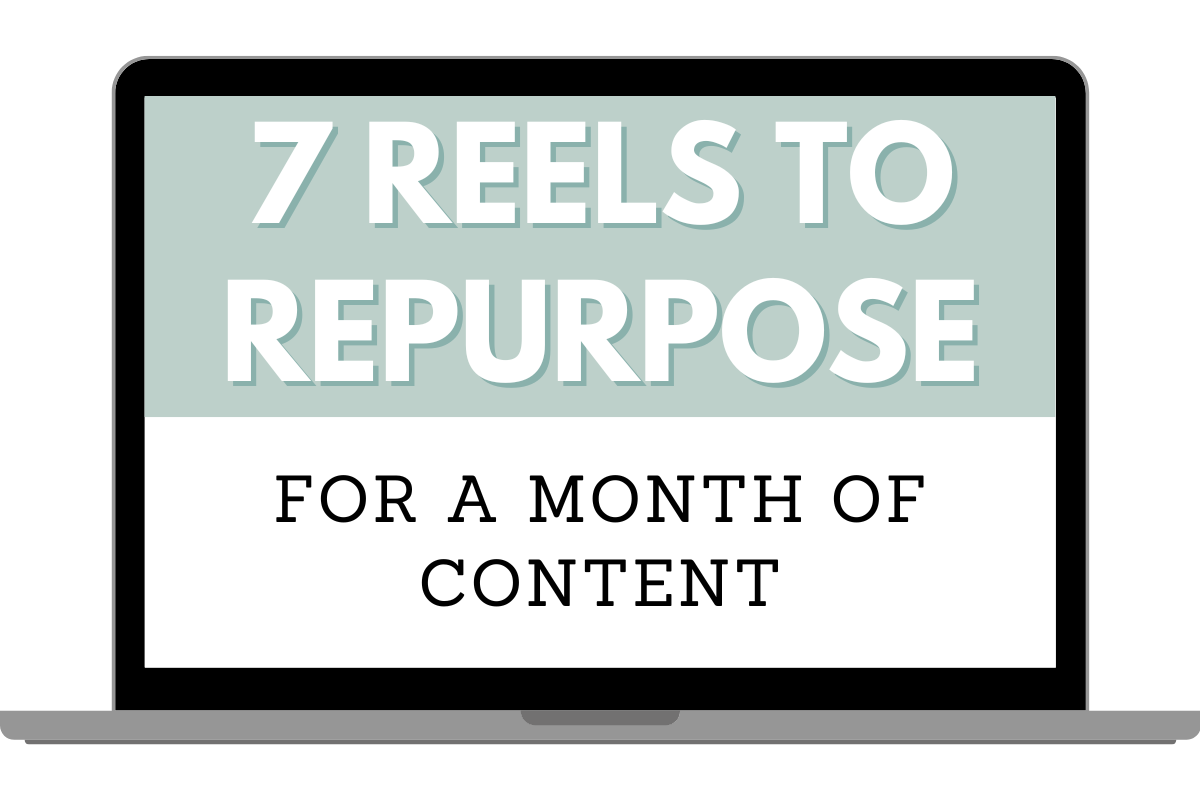
10 Things to do Before Launching Your Online Business
Disclosure: This post may contain affiliate links. I may receive a small commission at no additional cost to you if you purchase a product or service using one of the affiliate links within this post. I love all my affiliates and make sure they align with my brand before allowing them into my blog. Thanks for your support!
Starting a business is one of the most exciting and challenging things you can do.
When I launched my business back in 2022, I was super optimistic.
The problem was that I had no clue where to start building a business.
As you can imagine, this didn't last long.
Looking back, there are a few things I wish someone had told me before I launched my business.
That's one of the main reasons I created this blog!
It's here to help you start, build, and grow your online business.
It is exactly the resource I wish I had when I was starting out.
So let's get to the 10 things you should do before launching your online business.
What to do Before Starting an Online Business
These 10 things are helping you create the foundation of your business.
It will help guide you in the future as your business grows.
Starting a business is filled with excitement and learning experiences.
Take them as they come!
But by using these ten steps before you launch, you’ll set yourself up for success and avoid some of the things I went through.
Remember, every entrepreneur’s journey is unique, and my business is going to be different from yours.
Use these tips to guide you, but don't forget to make your business your own.
I'm always here if you need advice!
1. Choose How Your Brand Will Look
The way your business looks is important!
Colours, fonts, and even pictures should all be consistent.
If it comes from your business, it should have a similar look to everything else.
This helps your audience recognize when something is part of your brand.
When I started, I didn't understand why this was important.
Now, I make sure that my brand colours and fonts are the same on everything I create.
Spend time picking your brand colours, ones that you like and that make sense for your business's personality.
Choose fonts that are easy to read and align with your brand’s feel.
And create or choose images that fit with your brand's message.
This can help make your business more memorable.
2. Create a Website
Let's get one thing straight, your website doesn't have to be big.
But it is a central hub where your audience can find everything they need related to your business.
I'm personally working on updating my own website right now to do just that!
It doesn’t need to be massive, but here are some basic pages I suggest.
A homepage introduces you and your business.
An about page that tells your story and how you can help your audience.
A services/products page that explains what you offer.
A contact page so people can reach you.
A page for your audience builder (we'll talk about that later).
Your website is meant to have everything you do in one place.
3. Decide Your Audience Builder
One of the major business decisions you need to make is how you’ll grow your audience.
There are many options, but it’s best to focus on one main method when you're first starting.
It is where you can share information and grow an audience.
I would seriously suggest whatever audience builder you choose, your main message is something you're passionate about.
It can be gaming, cooking, business advice (like me), art, fashion, makeup, and anything else you can think of.
Some of my favourite audience builders are podcasting, blogging, and YouTube.
Podcasting is more about audio content. If you like editing audio and possibly interviewing others, this is for you.
Blogging is great for driving organic traffic to your website and would be a good pick if you love writing.
YouTube uses both video and audio. If video editing is your thing, this could be for you.
Other options include social media platforms like Instagram, Facebook, TikTok, and LinkedIn.
I suggest that you choose the audience builder that you enjoy the most and that your target audience is looking for.
4. Make and Prep Your Audience Builder
Awesome!
You have a way to build your audience.
Now it's time to prepare it for launch.
If you’ve decided to start a podcast, start by outlining your first few episodes. Then look into equipment you can use and create a podcast hosting account. Click here to check out my blog post on podcasting for beginners.
For blogging, the first thing I did was research everything I could. Then I thought of ideas for blog posts, wrote a few posts in advance, and set up my blog on my website. If you want more info on creating a blog, check out my blog post here.
If you're starting a YouTube channel, think of video ideas, look for some recording equipment that is within budget, and create a YouTube channel.
When you take the time to prepare your audience builder in advance, it will be fully prepared for launch day.
It's one less thing off your plate.
5. Set Up Your Social Media Accounts
Social media can be great for growing your business but have a strategy to decide which platforms you use.
Here's something I didn't realize until recently:
You don’t need to be on every social media site.
You just have to choose the ones your target audience uses.
For example, if you’re targeting professionals, LinkedIn might be a good choice.
If your audience is younger, Instagram or TikTok could be better.
As a blogger, the only social media site I use regularly is Pinterest to help promote my newest blog post.
And when you're setting up your social media accounts, make sure your content aligns with your brand.
Use your brand colours, fonts, and images so your followers know it's you.
I would also recommend uploading quality content consistently, no matter what social media platforms you choose.
6. Figure Out How You Will Monetize Your Business
I know, monetize sounds like a scary word.
But what I mean by it is how you will make money from your business.
Monetization is a crucial aspect of your business plan.
You should have a strategy and know what you will use to make money.
Here are the two things I am currently using while writing this blog post.
Digital products like e-books, courses, planners, journals, checklists, and templates can be a great way to generate passive income.
Freelance services, such as consulting or design work, can also be a good way to go.
Think about what makes the most sense for your business and start creating and planning how to sell your products or services.
7. Make Sure Everything You've Made is On Brand
Before you launch, take a look at everything you’ve created so far.
Ensure that everything (your website, social media, content, products/services, and marketing materials) uses the same brand colours and fonts.
If you notice anything that isn't on-brand, now is the time to fix it.
This can help your brand to be more recognizable and memorable.
8. Decide Your Work Hours
It’s easy to let work take over your life, especially when you're starting out.
That's exactly what happened to me.
To avoid burnout, stick to your work hours, but also know that it's ok to teak breaks.
I work from 9-5, and I do my best to not even think about work outside of those hours.
But please pick the hours that work best for you and your lifestyle.
Having a schedule has helped me stay productive and stops me from overworking myself.
9. Plan your Future Work Weeks
Just before launching my blog, I planned how my weeks would generally look.
And sure, that initial layout I planned has changed a few time.
But it felt good going in with a clear plan after not doing it the first time around.
It has helped my stay focused on achieving my goals.
So where do you start?
If you have another job or other commitments, it’s especially important to plan when you’ll work on your business.
Decide which tasks you’ll do each day of the week, then set aside specific time blocks for them.
For example, you might dedicate Mondays to your audience builder, Tuesdays to marketing, Wednesdays to client work, Thursdays to product creation, and Fridays to go over anything you missed that week.
Having a general layout for your week can help you stay on track and make consistent progress in your business.
10. Prevent Burnout
As I've said before, preventing burnout is something you should be thinking about from the start.
The thing I want you to take away from it is this:
Add multiple breaks into your day.
Many short ones and one or two long ones is what I do.
Taking short breaks to do something other than work can help you recharge and stay focused.
I like to spend my breaks reading, eating a snack, playing video games, watching a TV show, cleaning, or walking.
Breaks should be for things you enjoy doing!
I find it helps keep me interested in work.
Are You Ready to Launch Your Business?
Thanks for reading this far!
You should feel so proud that you're taking the gigantic leap and starting a business.
If you want to chat about anything I mentioned in this blog post, I'd love it if you DM me on Instagram!
See you soon!
Isabella

10 Things to do Before Launching Your Online Business
Disclosure: This post may contain affiliate links. I may receive a small commission at no additional cost to you if you purchase a product or service using one of the affiliate links within this post. I love all my affiliates and make sure they align with my brand before allowing them into my blog. Thanks for your support!
Starting a business is one of the most exciting and challenging things you can do.
When I launched my business back in 2022, I was super optimistic.
The problem was that I had no clue where to start building a business.
As you can imagine, this didn't last long.
Looking back, there are a few things I wish someone had told me before I launched my business.
That's one of the main reasons I created this blog!
It's here to help you start, build, and grow your online business.
It is exactly the resource I wish I had when I was starting out.
So let's get to the 10 things you should do before launching your online business.
What to do Before Starting an Online Business
These 10 things are helping you create the foundation of your business.
It will help guide you in the future as your business grows.
Starting a business is filled with excitement and learning experiences.
Take them as they come!
But by using these ten steps before you launch, you’ll set yourself up for success and avoid some of the things I went through.
Remember, every entrepreneur’s journey is unique, and my business is going to be different from yours.
Use these tips to guide you, but don't forget to make your business your own.
I'm always here if you need advice!
1. Choose How Your Brand Will Look
The way your business looks is important!
Colours, fonts, and even pictures should all be consistent.
If it comes from your business, it should have a similar look to everything else.
This helps your audience recognize when something is part of your brand.
When I started, I didn't understand why this was important.
Now, I make sure that my brand colours and fonts are the same on everything I create.
Spend time picking your brand colours, ones that you like and that make sense for your business's personality.
Choose fonts that are easy to read and align with your brand’s feel.
And create or choose images that fit with your brand's message.
This can help make your business more memorable.
2. Create a Website
Let's get one thing straight, your website doesn't have to be big.
But it is a central hub where your audience can find everything they need related to your business.
I'm personally working on updating my own website right now to do just that!
It doesn’t need to be massive, but here are some basic pages I suggest.
A homepage introduces you and your business.
An about page that tells your story and how you can help your audience.
A services/products page that explains what you offer.
A contact page so people can reach you.
A page for your audience builder (we'll talk about that later).
Your website is meant to have everything you do in one place.
3. Decide Your Audience Builder
One of the major business decisions you need to make is how you’ll grow your audience.
There are many options, but it’s best to focus on one main method when you're first starting.
It is where you can share information and grow an audience.
I would seriously suggest whatever audience builder you choose, your main message is something you're passionate about.
It can be gaming, cooking, business advice (like me), art, fashion, makeup, and anything else you can think of.
Some of my favourite audience builders are podcasting, blogging, and YouTube.
Podcasting is more about audio content. If you like editing audio and possibly interviewing others, this is for you.
Blogging is great for driving organic traffic to your website and would be a good pick if you love writing.
YouTube uses both video and audio. If video editing is your thing, this could be for you.
Other options include social media platforms like Instagram, Facebook, TikTok, and LinkedIn.
I suggest that you choose the audience builder that you enjoy the most and that your target audience is looking for.
4. Make and Prep Your Audience Builder
Awesome!
You have a way to build your audience.
Now it's time to prepare it for launch.
If you’ve decided to start a podcast, start by outlining your first few episodes. Then look into equipment you can use and create a podcast hosting account. Click here to check out my blog post on podcasting for beginners.
For blogging, the first thing I did was research everything I could. Then I thought of ideas for blog posts, wrote a few posts in advance, and set up my blog on my website. If you want more info on creating a blog, check out my blog post here.
If you're starting a YouTube channel, think of video ideas, look for some recording equipment that is within budget, and create a YouTube channel.
When you take the time to prepare your audience builder in advance, it will be fully prepared for launch day.
It's one less thing off your plate.
5. Set Up Your Social Media Accounts
Social media can be great for growing your business but have a strategy to decide which platforms you use.
Here's something I didn't realize until recently:
You don’t need to be on every social media site.
You just have to choose the ones your target audience uses.
For example, if you’re targeting professionals, LinkedIn might be a good choice.
If your audience is younger, Instagram or TikTok could be better.
As a blogger, the only social media site I use regularly is Pinterest to help promote my newest blog post.
And when you're setting up your social media accounts, make sure your content aligns with your brand.
Use your brand colours, fonts, and images so your followers know it's you.
I would also recommend uploading quality content consistently, no matter what social media platforms you choose.
6. Figure Out How You Will Monetize Your Business
I know, monetize sounds like a scary word.
But what I mean by it is how you will make money from your business.
Monetization is a crucial aspect of your business plan.
You should have a strategy and know what you will use to make money.
Here are the two things I am currently using while writing this blog post.
Digital products like e-books, courses, planners, journals, checklists, and templates can be a great way to generate passive income.
Freelance services, such as consulting or design work, can also be a good way to go.
Think about what makes the most sense for your business and start creating and planning how to sell your products or services.
7. Make Sure Everything You've Made is On Brand
Before you launch, take a look at everything you’ve created so far.
Ensure that everything (your website, social media, content, products/services, and marketing materials) uses the same brand colours and fonts.
If you notice anything that isn't on-brand, now is the time to fix it.
This can help your brand to be more recognizable and memorable.
8. Decide Your Work Hours
It’s easy to let work take over your life, especially when you're starting out.
That's exactly what happened to me.
To avoid burnout, stick to your work hours, but also know that it's ok to teak breaks.
I work from 9-5, and I do my best to not even think about work outside of those hours.
But please pick the hours that work best for you and your lifestyle.
Having a schedule has helped me stay productive and stops me from overworking myself.
9. Plan your Future Work Weeks
Just before launching my blog, I planned how my weeks would generally look.
And sure, that initial layout I planned has changed a few time.
But it felt good going in with a clear plan after not doing it the first time around.
It has helped my stay focused on achieving my goals.
So where do you start?
If you have another job or other commitments, it’s especially important to plan when you’ll work on your business.
Decide which tasks you’ll do each day of the week, then set aside specific time blocks for them.
For example, you might dedicate Mondays to your audience builder, Tuesdays to marketing, Wednesdays to client work, Thursdays to product creation, and Fridays to go over anything you missed that week.
Having a general layout for your week can help you stay on track and make consistent progress in your business.
10. Prevent Burnout
As I've said before, preventing burnout is something you should be thinking about from the start.
The thing I want you to take away from it is this:
Add multiple breaks into your day.
Many short ones and one or two long ones is what I do.
Taking short breaks to do something other than work can help you recharge and stay focused.
I like to spend my breaks reading, eating a snack, playing video games, watching a TV show, cleaning, or walking.
Breaks should be for things you enjoy doing!
I find it helps keep me interested in work.
Are You Ready to Launch Your Business?
Thanks for reading this far!
You should feel so proud that you're taking the gigantic leap and starting a business.
If you want to chat about anything I mentioned in this blog post, I'd love it if you DM me on Instagram!
See you soon!
Isabella





